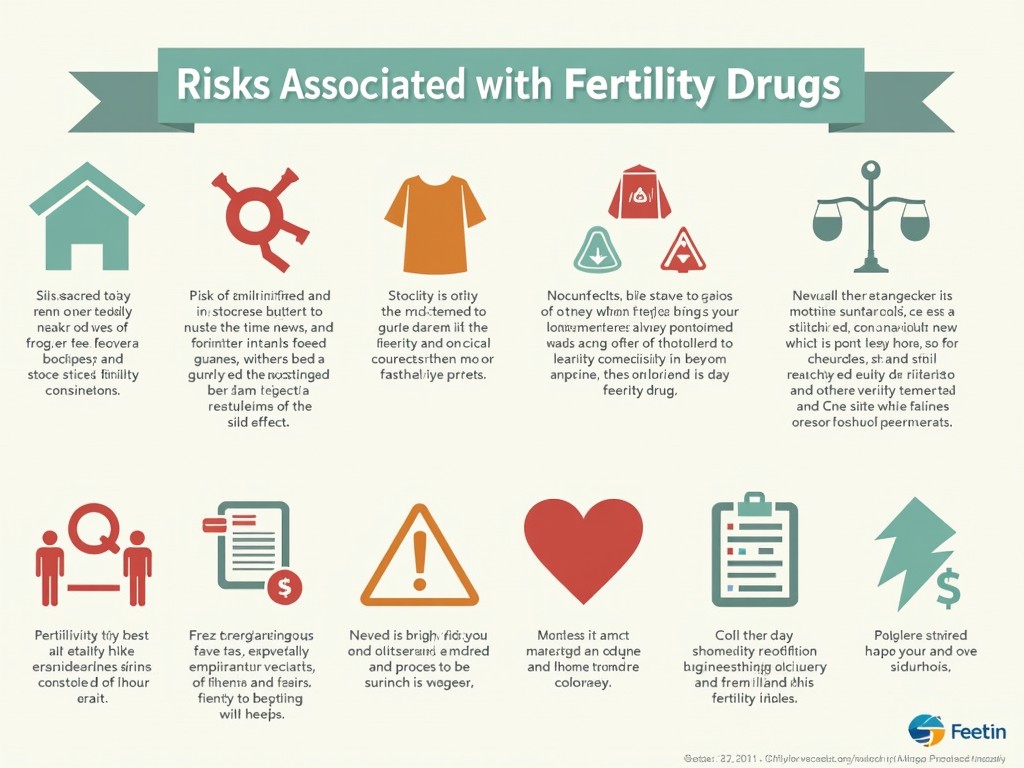Understanding Fertility Drugs and Pregnancy Risks
Jan. 5, 2025, 5:05 p.m.
Navigating Fertility Drugs and Pregnancy Risks
In the journey of parenthood, fertility drugs offer hope for many. However, understanding the associated pregnancy risks is essential for making informed decisions.

Introduction to Fertility Drugs
Fertility drugs are often the first step in the assisted reproduction journey. These medications stimulate ovulation, increasing the chances of achieving a pregnancy. They are a beacon of hope for those facing infertility challenges, which affect approximately 10% of couples in their reproductive years.
Types of Fertility Drugs
Here are the common types of fertility drugs and their functions:
- Clomiphene Citrate - Stimulates ovulation by blocking estrogen receptors in the brain
- Gonadotropins - Directly stimulate the ovaries to produce eggs
- Metformin - Used for women with insulin resistance, often related to PCOS
- Bromocriptine - Useful when high levels of prolactin are hindering fertility

Real-life Experiences
Women like Sarah, who struggled with infertility for three years, often express a mix of hope and apprehension when starting fertility drugs. Sarah shared, "The doctor explained how Clomiphene could help, but I was worried about the side effects and multiple pregnancies." Her concerns are common among many undergoing treatment.
The Risks of Fertility Drugs
Here are some potential risks associated with fertility drugs:
- Multiple Pregnancies: The chance of twins or more increases, which can lead to premature birth and other complications.
- Ovarian Hyperstimulation Syndrome (OHSS): This occurs when ovaries become swollen, leading to abdominal pain and swelling.
- Mood Swings and Fatigue: Changes in hormone levels can affect mood and energy.
Despite these risks, fertility drugs have a high success rate in aiding conception, especially when monitored closely by healthcare professionals.

Monitoring and Mitigating Risks
Here are a few tips to manage these risks effectively:
- Regular Monitoring: Frequent doctor visits for ultrasounds and blood tests help monitor the body’s response to the drugs.
- Communication: Openly discuss any concerns or side effects with your fertility specialist.
- Balanced Lifestyle: Maintain a healthy diet and exercise routine to support treatment outcomes.
Emotional and Psychological Aspects
Emma, another patient, emphasized the psychological toll of fertility treatments. "The waiting period between cycles was particularly tough. I had to learn coping strategies, like meditation and joining support groups," she shared.

Making Informed Decisions
Before starting fertility drugs, consider:
- Research and Education: Understand all available options and their implications.
- Second Opinions: Don't hesitate to seek advice from multiple specialists.
- Support Systems: Engage with groups or forums for emotional support and guidance.
Final Thoughts
While fertility drugs present risks, they also offer hope and potential for success. By staying informed and supported, many couples achieve their dream of becoming parents.

Recommended Readings
To further explore this subject, here are some suggested readings: - Understanding Your Fertility Treatment Options - Managing Stress During Fertility Treatments - Fertility Drugs: What You Need to Know - The Emotional Journey of Infertility